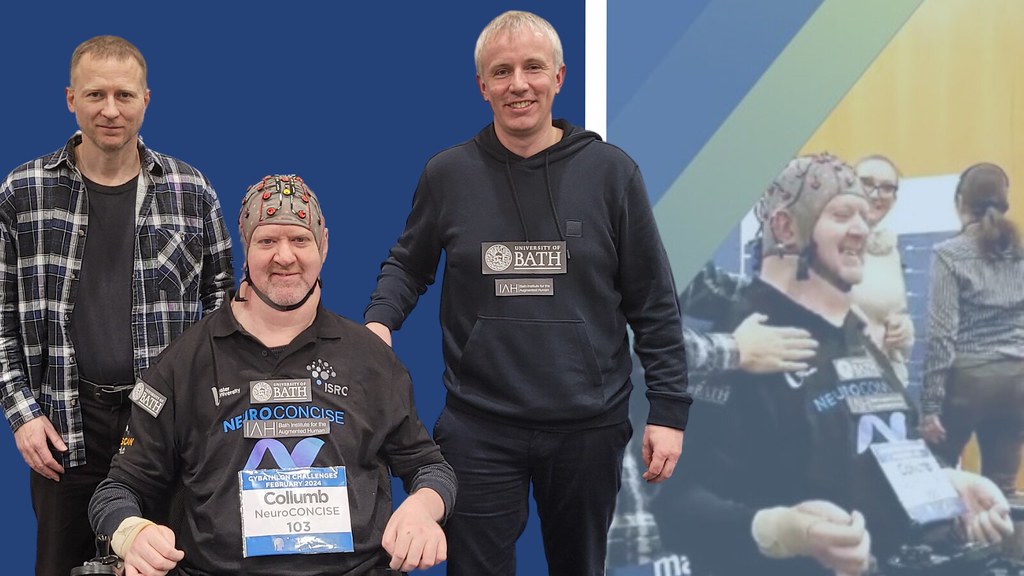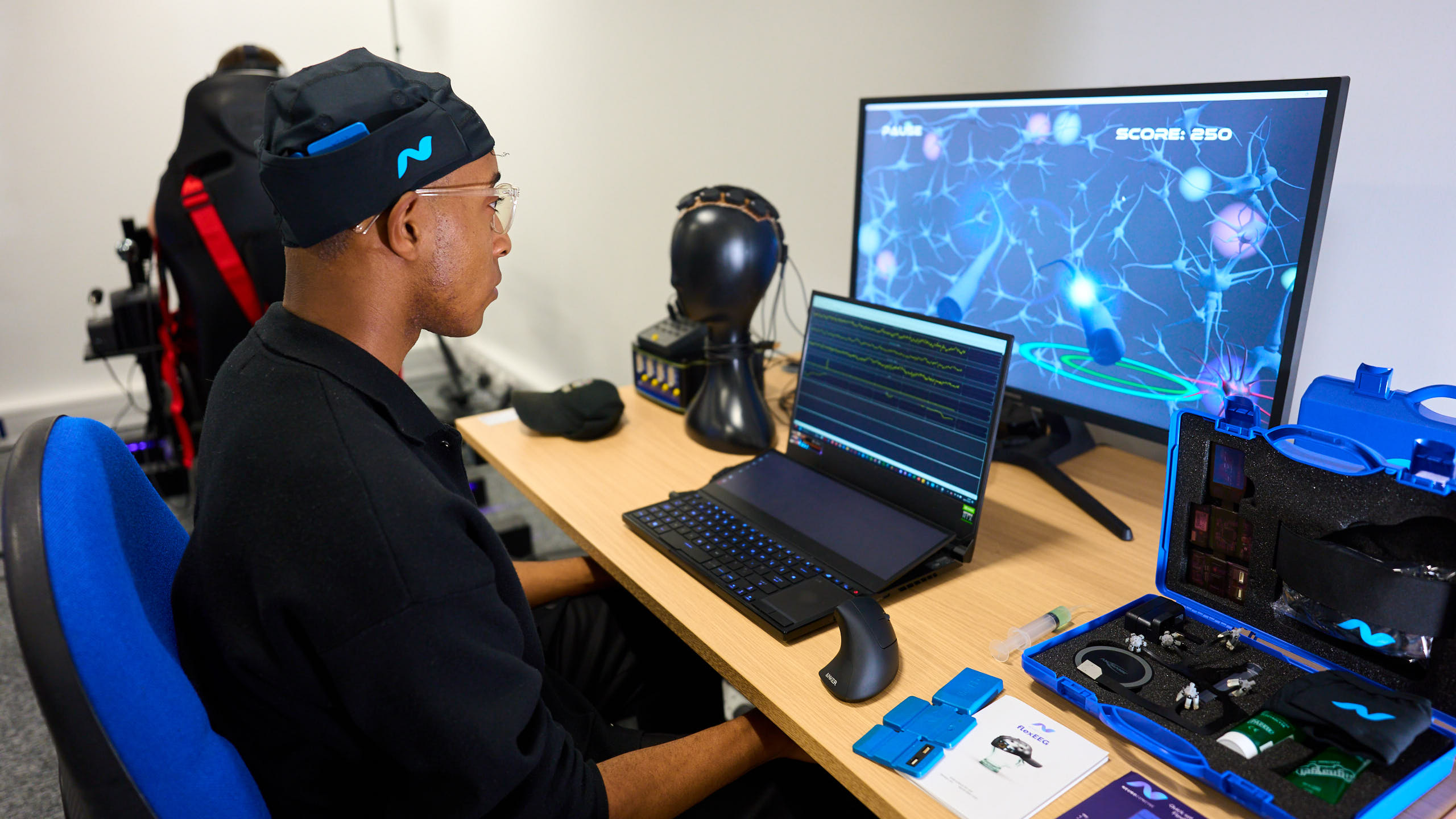Government Chief Scientific Adviser visits University of Bath

Prof Dame Angela McLean and DSIT CSA Prof Chris Johnson visited the University to see how Bath research is making an impact and helping to drive growth.
We are a diverse community of researchers, policy makers, entrepreneurs and educators using technology to enhance and improve the physical and cognitive abilities of individuals. We believe in a holistic ecosystem for the development and deployment of human augmentation that considers the technological, ethical, societal, moral, and regulatory aspects.
Meet the teamRead the latest research highlights from the institute

Prof Dame Angela McLean and DSIT CSA Prof Chris Johnson visited the University to see how Bath research is making an impact and helping to drive growth.

IFESS UK conference explored new treatments that use functional electrical stimulation

Everyday clothing may soon be able to capture and record body movements, according to new research published by the Universities of Bath and Bristol.

The IAH is proud to announce the IEEE Brain AI for Neurotechnology Workshop at the World Congress on Computational Intelligence 2024 event in Yokohama, Japan.

The University has appointed two distinguished international visiting professors for a term of two years as part of the annual Global Chair scheme.

Tech developed at Bath has enabled a cybathlete with spinal injuries to control a computer using brainwaves alone and win the global CYBATHLON Challenge.
Human augmentation uses science and technology to enhance physical and cognitive performance – and it has the potential to transform every aspect of our lives. It can enable us to surpass our biological limitations, improve health and wellbeing, and extend our lifespans.
Increasingly, we’re using cutting-edge technology to keep us healthy and help us perform better. From neurotechnology headsets that can translate brain activity into communication, to super-strength wearable exoskeletons, there are countless ways intelligent machines can make a difference.
Innovation in the field of human augmentation is developing at a rapid rate, and the opportunities to bring together new human-machine interfacing technologies are immense. The Bath Institute for the Augmented Human has been founded to accelerate technological developments and help the UK prepare for the growing impact of direct human-to-machine interactions.

We aim to be a leading institute nationally and globally, driving responsible, cutting-edge research and trialling and deploying human augmentation technologies that have a wide-reaching impact.
Our world-leading research institute brings together more than 50 academics from disciplines including robotics, engineering, computer science, health, neuroscience, and psychology. We want to push the limits of our natural capabilities, and we’ll work with industry partners, patient groups and others, to find new and imaginative ways to integrate machines with our bodies and minds, improving our quality of life.
We also want to ensure human augmentation technology is deployed both safely and ethically. Through our research we will take a leading role in devising rules, ensuring no harm is done by the technology developed in this field.

Drawing on academics from across departments and disciplines, we have leading expertise in a wide range of relevant technologies. These include brain-computer interfaces, motion capture, eye tracking, prosthetics and exoskeletons, biosensors and virtual and augmented reality research. We also have strong links with regional, national and global partners in academia and industry and collaborators in UK hospitals, sports governing bodies and defence forces.
Examples of impactful technologies developed by the team include:

The University of Bath Institute for the Augmented Human brings together fundamental and applied science and engineering, and whole systems approaches; applying interdisciplinarity across its research, training, education, collaboration, policy, public engagement and knowledge exchange activities.
If you have any questions about our research, please get in touch.